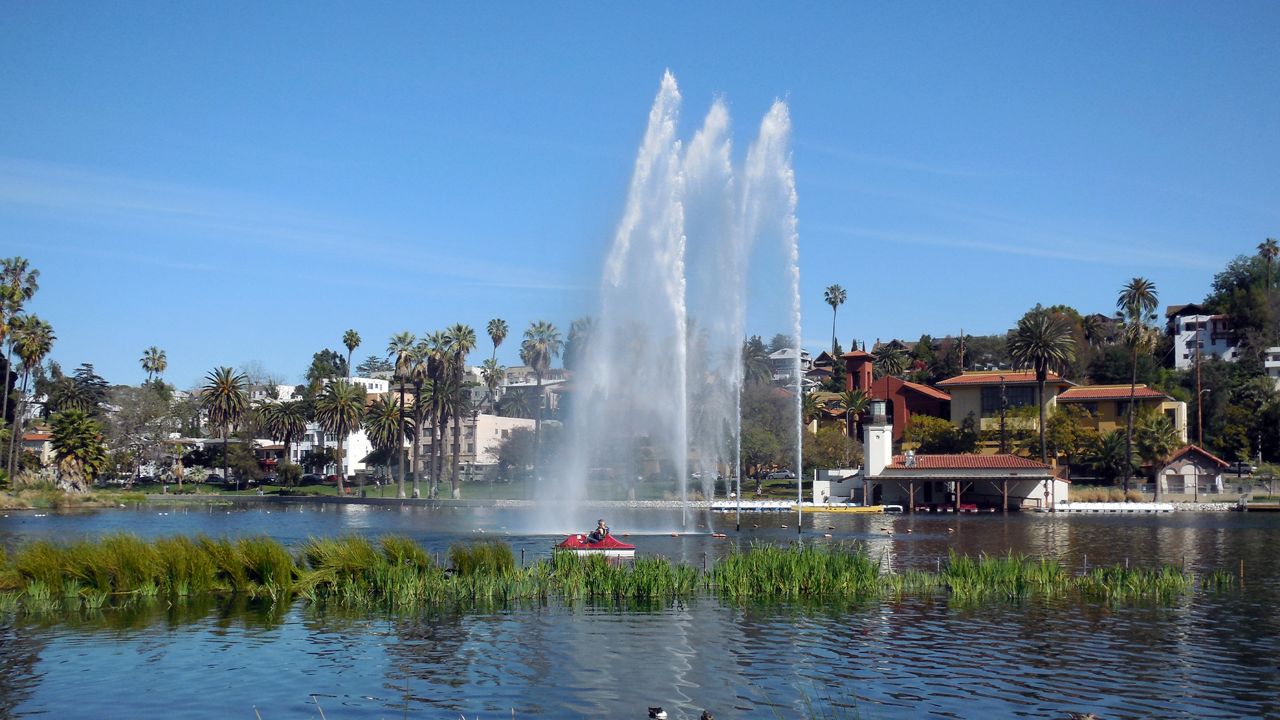LOS ANGELES (CNS) — Los Angeles city workers Monday took down the fence surrounding Echo Park — roughly two years after the park was closed and roughly 200 homeless people who had taken up residence there during the height of the coronavirus pandemic were moved.
“This morning, contractors with the Department of Recreation and Parks began removing the temporary fence surrounding Echo Park Lake,” City Councilman Hugo Soto-Martinez said in a statement. “There will be service providers and outreach workers at the park seven days a week, and we will have a team of unarmed responders available during nighttime hours if any issues arise at the park.”
Soto-Martinez said he looks forward to working with the community to achieve goals such as maintaining safety and cleanliness, implementing solutions to homelessness like proactive outreach and vital services, expanding park programming, improving accessibility and allowing vendors to return.
Former Councilman Mitch O’Farrell’s office had arranged for the closure of the park in 2021, saying the operation was required to clean and make needed repairs. LA Sanitation and Environment crews removed what they quantified as 35.7 tons of solid waste from the location.
The park underwent $600,000 worth of cleaning and repairs, including replacing playground surfacing, upgrading restrooms and exterior lighting fixtures to LED, replacing five drinking fountains, improving light poles in the area, improving and painting the exterior of the lake's boathouse, improving the lake bridge, refurbishing the park's turf and improving irrigation.
O'Farrell said in a statement to City News Service Monday that the cost of cleanup and renovations after the city housed 200 people was an estimated $1.1 million — including repair of any vandalism and deferred maintenance of the park and lake.
When word spread in March 2021 that the park would be closed for repairs, many in the community saw it as a veiled effort to remove the hundreds of homeless people who took up residence in the park during the pandemic.
The move was met with large protests, in which officers arrested 182 people. Protesters blasted the city for forcing the park’s residents out of an area that had grown into what they called a supportive community — including a vegetable garden, working showers and a shared kitchen.
Many neighbors had complained about increasing trash at the park, and said they no longer felt safe there.
City officials at the time said the site had become dangerous, with drug overdoses and four deaths taking place there.
The closure of the park, protests and the subsequent removal of the homeless community played a part in Soto-Martinez’s campaign to represent Council District 13 and oust O’Farrell.
Soto-Martinez claimed that encampments at Echo Park increased under O’Farrell’s watch and said he would not allow “encampments to grow like they did at Echo Park Lake.”



